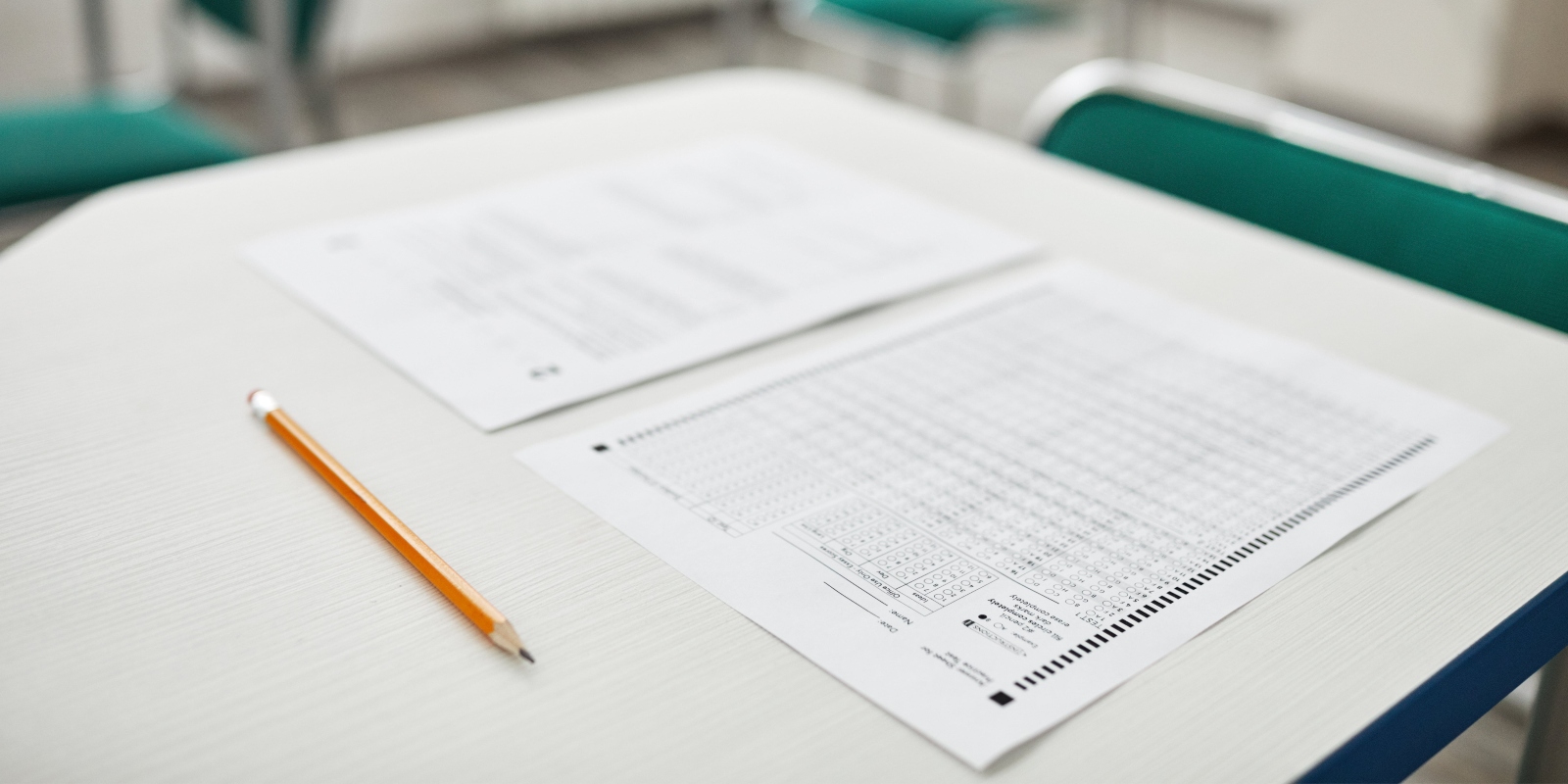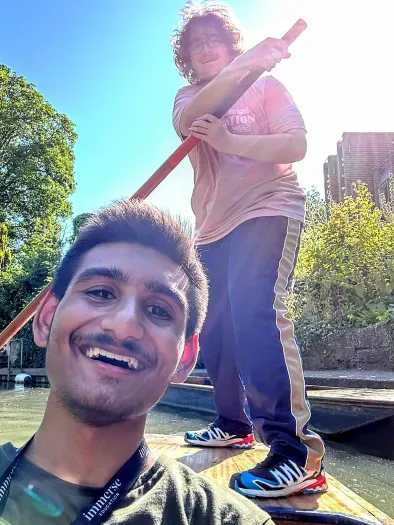Are you like me? Exams can be terrifying. But what’s the answer to how to prepare for exams?
It can feel as if in a mere matter of minutes, you could make or break your whole term, year, or academic future.
However, we should try to manage the stress and pressure associated with exams. After all, they are just a set of questions designed to enable you to implement what you have been learning throughout the course.
Do you sacrifice sleep to rush-read 100 pages of your textbook?
They are not there to trick you or designed to make you fail, rather, they are an opportunity to show how much you know!
1. Being Human
An examination hall is a unique place in which your usual mental capacities can be affected, for better or for worse.
You may develop an almost superhuman ability to think, create and solve in a way you did not imagine possible. Or you may find that your usually quick-firing brain has decided to take a leave of absence, as you stare at the invigilators and try to remember your own name.
The pressure to do well from teachers, institutions, family and yourself can act as a catalyst in these scenarios, either supporting you to achieve your best, or potentially hindering your ability to get the job done.
Both reactions, and any others besides, are perfectly acceptable and you shouldn’t beat yourself up if you do find yourself feeling like a rabbit in the headlights in the exam room.*
The difficulty with exams is that they are uniform, standardised, rigid. You, a human, are anything but. Embrace your individuality and take steps to make the process work for you.
*take a few deep breaths and remind yourself of something really basic that you do know about the subject. Your brain will grind into action and you’ll be firing on all cylinders before you know it.
2. Revise For You
Before you even enter the exam hall though, an effective revision schedule must be completed – that’s effective for you, not what your friend tells you to do.
Your teachers will be able to suggest different methods for revising for your exams. There is no ‘one size fits all’ solution. Some people can look over their notes for half an hour and know everything, others need to copy it out meticulously, taking several hours to colour-code and highlight as they go.
Others still prefer to have flash cards and test themselves, and others, using teaching as a means of consolidating their knowledge. Try out these different methods, find what works for you, and then plan your time accordingly.
If you need to write notes on the Civil Rights movement in America between 1865 and 1992, you will need to leave yourself plenty of time!
You May Like: How To Write An Academic Essay?
Likewise, everyone has a time of the day during which they are at their most efficient. This may be first thing in the morning or last thing at night. There are effective ways to study in a group
The key is to abolish guilt or self-pity: don’t begrudge yourself the odd lie-in if you make up for it with a good session in the evening; don’t feel sorry for yourself at the amount of work you have to do, everyone is in the same position and there is always enough time to get it done if you plan your revision in advance.
3. Play The Infinite Game
Your mindset predicts your behaviour. The best way to prepare for exams is to fine-tune your mindset to encourage the best behaviour. Simon Sinek is the best-selling author of “The Infinite Game.”
An infinite game doesn’t end, right? Your education is an example of that. Even if you graduate from school, you’ll never stop learning. School exams will equate to real-world problems. If you play the infinite game with a finite mindset, that’s when you get in trouble.
What’s a finite mindset?
Think of a football game. Within three to four hours, you’ll have to hit a definite number of points, intending to outscore the opponent. If you think that way for your exams, the tendency is you’ll only start studying when the exam date is approaching.
You’re willing to sacrifice your sleep and date to rush-read through 100 pages of your textbook to hit that goal score for your exams. Then when the exam is over, that’s it, back to the old life.
But if you adopt an infinite mindset, you’ll understand that learning and tests will always be there. And instead of competing against someone else, you’ll compete with yourself.
So you’re inspired to build better habits to improve – to become better than you were last semester.
How do you make yourself have good study habits?
Join the Immerse Education 2025 Essay Competition
Follow the instructions to write and submit your best essay for a chance to be awarded a 100% scholarship.

4. Build Good Study Habits
To build good study habits, consistency is key. Habits form when you do something repeatedly until it becomes second nature to you. Imagine how wonderful it is to have to study as second nature to you as brushing your teeth! You just do it!
How do you start? By deciding your day, time, and place. Will you study from Mondays to Saturdays every 6 pm at your local coffee shop? If so, place a reminder in your calendar. This is one of our recommendations in the best apps for students if you want to check it out.
James Clear, the best-selling author of “Atomic Habits,” explains that motivation is not the problem. It’s clarity. He presented a study wherein most people who watched motivational videos alone did nothing to exercise. But in another group, a large percentage of people who watched motivational videos and set the day, time, and place, did it. They exercised!
Need another tip to build a good study habit? James teaches that you need to arrange your physical environment in such a way as to remind you that you need to study. If you go about your day, hardly ever seeing your notes and textbooks, you’ll probably forget about them. Out of sight, out of mind.
But if you make them quickly accessible to you, maybe putting them on your bed, on the counter, or the sofa, you’ll most likely reach for them. And they’ll serve as reminders that you need to study!
5. Time-Block For Maximum Focus
Focus flows. If you read your textbook while watching Youtube videos every 10 minutes, chances are you didn’t understand anything you read. Much less retain it. Why? Because you disrupted the flow. Be gentle with yourself and set a safe time to learn at your pace, without distractions. Nobody says you can’t watch Youtube videos.
You definitely can! But it’s best to do so after studying.
Have you heard of the Pomodoro technique? It’s when you study for 25 minutes straight, without distractions. Then when the 25 minutes is up, you can take a short break for 5-10 minutes. Get a cup of coffee, take a short walk, or watch Youtube videos! After four cycles, you can take a longer break of 20-30 minutes. In this way, you can finish tasks while having sufficient breathing space.
That’s the basic principle, but you can adjust your process according to what works best. Maybe you’d like to study for 45 minutes straight and take a 30-minute break. The main goal is to set a period dedicated to learning without distractions.
6. Improve Your Note-Taking Game
Do you know that there are two types of learning, passive and active? In passive learning, you sit back and relax. You could listen to your professor teach for 1 hour without doing anything else. That’s passive learning. It’s the least effective method because you’ll most likely forget about what you heard in the next few minutes. But active learning involves engaging yourself while you’re listening. That’s what note-taking is all about.
As you listen, your mind processes the information, dictating your hand what it should write down. You may break the concepts into bullets. Draw diagrams to understand abstract topics better. Even create a mind map to see how the principles connect.
Here’s the thing. The notes you take during class will be all over the place – with barely understandable scribbles as you rush to take it all in. This means you’ll most likely take a second look at it to better organise it. Maybe rewrite/retype it to correct misspelt words. Highlight crucial information. Even add links to additional resources. It’s the act of writing and rewriting that allows your brain to retain information.
So if you were to just borrow information-packed notes from your classmates, it would never have the same results. Improve your note-taking game because it’s how your brain learns actively!
7. Determine How You Learn Best
Do you learn best in a group or individual setting? For some students, learning in a group works best. The act of asking and answering questions helps them piece the puzzle better. They need the energy and buzz to keep them active and eager. For others, they prefer to study by themselves. The quiet allows them to process information at a slower pace. You need to look into yourself and identify which setting brings out the best in you.
Another factor to consider is, are you a visual, auditory, or kinesthetic learner? Visual learners understand better when they see graphs, concept maps, or pictures. Auditory learners when they hear the information. Kinesthetic learners when they engage in physical activity.
If you’re a visual learner, take your time creating visual learning aids. You can draw them in your notebook. Use Microsoft Excel to make graphs and charts. Or scroll through pictures related to the subject matter you’re studying.
Are you an auditory learner? If so, with the permission of your professor, record the lecture. Then play it back when you study. Or better yet, record yourself explaining the topic as if you were the professor. Next, listen to the recording as often as you need. Doing so allows you to digest the information in a way that fits you and lets you see the gaps in your understanding – which you can fill in with further reading.
What if you’re a kinesthetic learner? Stand up to read instead of sitting down. Have a stress ball for you to fidget with as you go through your notes. Take a walk during your break time. Do jumping jacks as you memorise essential information like names and dates. Play study games with your groupmates if you thrive in a study group.
The bottom line is self-awareness. Know yourself and study according to how your brain is wired.
8. Create Note Cards For Review
When you move on from one topic to tackle the next, there’s a huge possibility that you’ll forget, especially when you wait too long before reviewing. An easy solution? Notecards. Write bite-sized information on small index cards you can shuffle quickly. Write a question on the front and the answers on the back to make it more engaging. Then, segregate them according to how often you get the answers right.
For the questions that you answer wrongly, put them in a priority-repeat file. These you have to revisit two times a week. For the questions you answer correctly, you can put them in a low-priority file. These you can revisit even just once every two weeks.
You can improvise how often you review according to what works best for you. But you get the idea. The more you review your note cards regularly, the better you remember information. When you follow this simple method, you won’t have to panic when the exam date draws near. You’ve been preparing for it since the day your professor lectured about it!
9. t-10 minutes
The nervous anticipation as you wait outside the exam is possibly the worst moment of the entire exam experience. Some people will be frantically reciting the periodic table, desperate for affirmation that they know enough ‘stuff’.
Others, upon hearing how much their classmate knows, will begin a tailspin of self-doubt in which they berate themselves for not working hard enough, not being clever enough, not being psychic enough.
Mixed in, you also have those who are silent and pale, irritable and extremely tense, and the blasés who are determined to play it cool, even though they were up until 3 am revising the night before.
It is important to figure out what you need before an exam. If standing in this crowd of contradictions and worry makes it harder for you to perform to your best in the exam, then remove yourself.
Take yourself to a nearby, quieter area. Listen to music, chat to a friend who feels the same way as you. Don’t be a sheep who copies what everyone else does. At the end of the day, only you can sit your exam. Give yourself your best chance by looking after yourself.
10. Take The Plunge
If you’ve made it this far, then it’s time to actually sit the exam. You have invested a huge amount of time and energy to get to this point. This was an investment in yourself.
Yes, you would have got detention if you hadn’t done any of the work your teachers set, but in reality, all the time and effort has been for your benefit. Try to take comfort in this fact and trust that you have done enough, probably more than enough.
It’s tempting to try and strategise (or catastrophise) about which questions will come up in the paper.
This won’t do you any good now. There’s no point in worrying that you can’t remember what Planck’s constant is, and you won’t gain anything from wishing you’d remembered an extra quote from Wuthering Heights.
You can’t change the past, so focus on the task at hand. You’ll be great.
Wrapping Up
Now you know the basic principles on how to prepare for exams. Learning is an infinite game, which means you need to develop good study habits and improve constantly. Remember that school exams equate to real-world problems after graduation! So know yourself and adapt accordingly. We at Immerse Education wish you the best of luck!

























